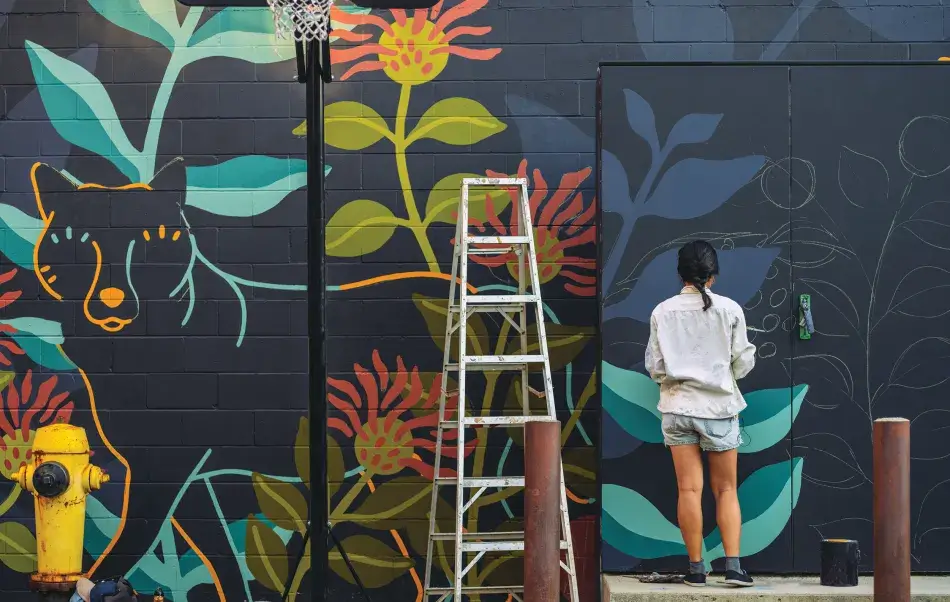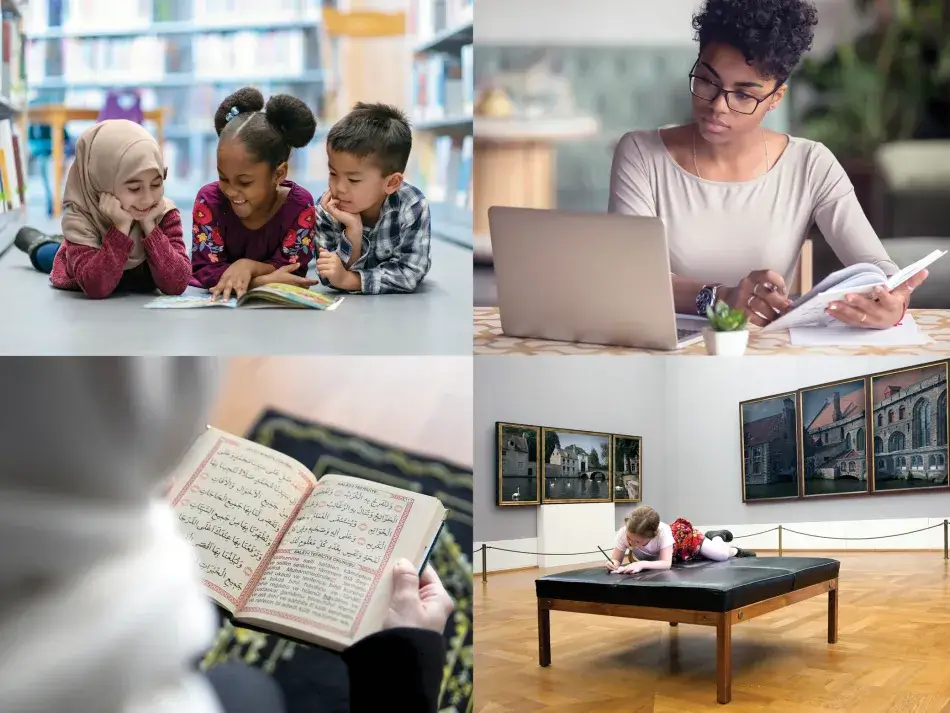
Since 1780, the Academy has advocated for the importance of the humanities, arts, and culture in American society, and has called on both private citizens and the nation’s government to help foster advances in these areas. Today, the Academy conducts research and develops policy recommendations to advance the humanities in academic scholarship and in the public sector, to display the importance of the arts in society, and to enrich the nation’s cultural life. By bringing together scholars, artists, and leaders from both the public and private sectors, Academy programs in The Humanities, Arts, and Culture put practitioners and scholars in conversation with individuals from other disciplines, ensuring that the arts and humanities are valued in all areas of civic life. Projects in this area demonstrate the value of the arts, humanities, and culture to the nation’s security and prosperity, and call attention to the role played by work in these fields to enriching the health of communities and the daily lives of its citizens.
Program Advisory Committee
CHAIR
Johanna Drucker
University of California, Los Angeles
MEMBERS
Richard Brodhead
Duke University
Colin Dayan
Vanderbilt University
Thomas Gunning
University of Chicago
Maria Hummer-Tuttle
The J. Paul Getty Trust
Jacqueline Jones
University of Texas at Austin
Mary C. Kelley
University of Michigan
Jane Dammen McAuliffe
Library of Congress
Jahan Ramazani
University of Virginia
Oscar Tang
New York, New York
Pauline Yu
American Council of Learned Societies
Project
Commission on the Arts

The Commission on the Arts seeks to reframe the national conversation about what role the arts can play in a diverse twenty-first-century democracy. The national focus of the project is reflected in the composition of its membership, which spans the cultural field and the geography of the United States; its members represent over a dozen states and more than forty organizations, disciplines, and institutions. This group of poets, scholars, institutional leaders, actors, and community advocates is guided by the common belief that the arts are essential to well-being. With this variety of perspectives, the Commission has been examining the funding mechanisms, policies, and narratives that currently govern the vast creative field.
Arts and culture are essential for their ability to bridge divides and foster community. The Commission seeks both to strengthen the impact and reach of creative work and encourage better support mechanisms for the artists and creatives whose labor and vision make that work possible. Through reports, recommendations, and public engagement initiatives – all set to launch in the summer of 2021 – the Commission will offer a framework for how the arts can be better integrated and appreciated in public life. One report will identify the needs of artists as workers and outline a series of recommendations of federal and state policies that can provide long-term workforce development and job opportunities for cultural workers. A second report will highlight existing inequities in access and illustrate the effects that the absence or presence of the arts in a student’s formative years can have on the whole child’s development. In addition to these policy-oriented reports, the Commission is also producing an engagement initiative centered on broad participation from the American public. Each element seeks, within its given topic area, to uplift the necessity of art giving meaning to daily life, both personally and collectively.
Commission Chairs
John Lithgow
Actor and Author
Deborah F. Rutter
The John F. Kennedy Center for the Performing Arts
Natasha Trethewey
Northwestern University
Funders
Ford Foundation
The Getty Foundation
The John S. and James L. Knight Foundation
The Kresge Foundation
The Barr Foundation
Roger and Victoria† Sant
† Deceased
Project
The Humanities Indicators

The Humanities Indicators provide information about all aspects of the humanities: ranging from early childhood reading, through undergraduate and graduate education in the humanities, and on to employment and experiences later in life with museums and other humanistic activities. Now in its eleventh year as a publicly available website, the project tracks the condition of the humanities enterprise via its own rigorous survey research and analyses of data gathered by the federal government.
Recent work has included national surveys of humanities departments at four-year colleges and universities, as well as a survey of over five thousand Americans about their engagement with and attitudes about a variety of humanities activities. The Humanities Indicators are accessible at www.amacad.org/humanities-indicators.
Project Directors
Norman M. Bradburn
NORC at the University of Chicago
Robert B. Townsend
American Academy of Arts and Sciences
Select Project Publications
The Humanities in Our Lives (2019)
The State of the Humanities in Four-Year Colleges and Universities (2020)
The Humanities in American Life: Insights from a Survey of the Public’s Attitudes and Engagement (2020)
Funder
The Andrew W. Mellon Foundation